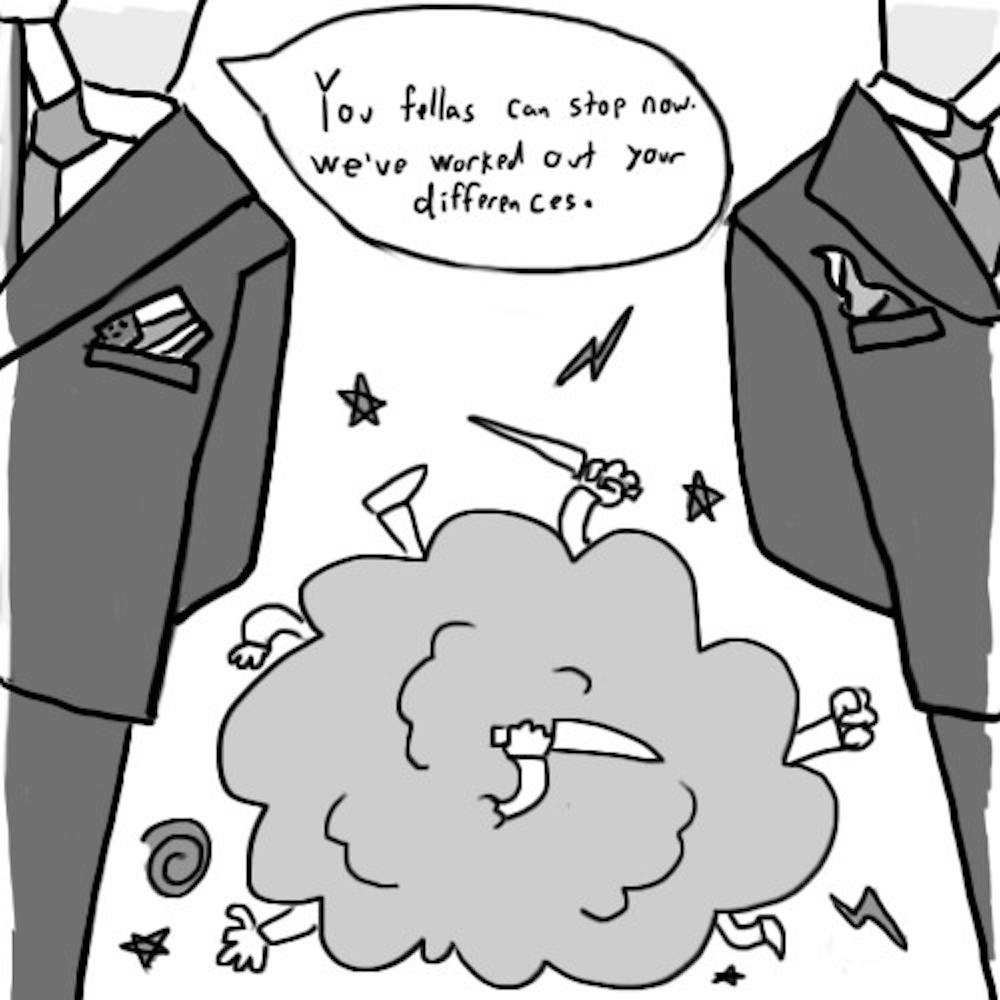The Syrian civil war seems like an ongoing saga of increased violence and bloodshed with no light at the end of the tunnel.
In order to try and put at least a temporary end to the violence in Syria, the United States and Russia agreed to a partial truce last week.
According to the agreement, the Syrian government and the armed opposition are asked to concur on a “cessation of hostilities” that began this last weekend.
Although the agreement to temporarily end hostilities seems like a positive step forward, we, the Editorial Board, are skeptical this cease-fire will be able to actually curb the level of violence in Syria.
We believe the United States involvement in Syria is not politically persuasive enough to bring change to the conflict.
President Obama and Russian President Vladimir Putin worked out details of the cease-fire over the phone.
During the phone call, Obama told Putin that the goals of this agreement were to “alleviate the suffering of the Syrian people.”
The New York Times also claimed the agreement served to “accelerate a political settlement and keep the focus on the coalition’s battle against the Islamic State.”
While it is important for the U.S. and Russia to come to an agreement on their approaches and involvement in the Syrian conflict so that hostilities between our two countries do not get worse, the cease-fire is only recognized by two of the four violent groups in the area.
The agreement leaves the Islamic State and the Nursa Front, arguably the two most violent extremist groups, out of the cease-fire.
The exemption of ISIS and Nursa make the Editorial Board doubt the effectiveness of the cease-fire and whether or not the cessation of violence will last as long as it was agreed to last.
At the same token, the reputation of the U.S. acting in good faith is also questionable.
The State Department released a statement for Secretary of State John Kerry, stating, “He is of course glad that we got the modalities agreed upon and a start date, but he isn’t prepared to take anything for granted.
In his mind, this is not time to celebrate.”
Kerry is so skeptical of this cease-fire working out that he spoke about a backup plan to build a partition between the Syrian government-controlled area and the government opposition.
Basically, this partition would divide the presence of the U.S. and Russia in Syria.
The Editorial Board agrees a backup plan, but a partition, is necessary. The U.S. and Russia should be focused on removing ISIS from the region and not on the territorial holdings of the other.
A cease-fire may sound like a great step forward in ending violence, but it might do more harm than good.




